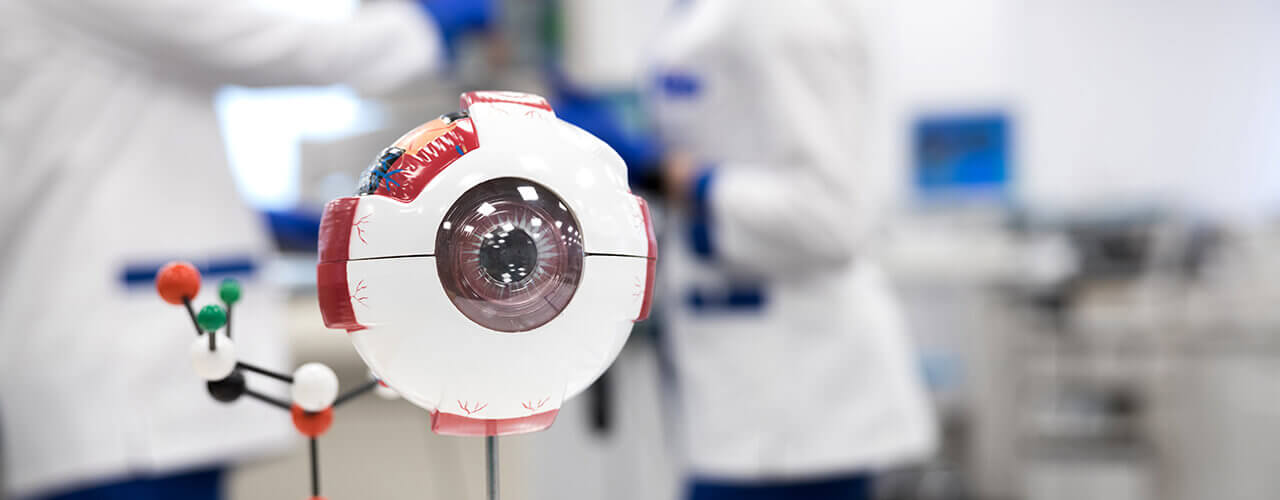
What is the difference between an ophthalmologist, an optometrist and an optician?
- An Ophthalmologist (MD) has a medical degree and is licensed to practice medicine and perform eye surgery. An ophthalmologist degree requires at least 12 years of education and training after high school and is qualified to diagnose and treat all eye diseases; perform surgery; prescribe and fit glasses and contact lenses.
- An Optometrist (OD) has a degree in optometry and is licensed to practice optometry. An optometrist degree requires at least six years of education and training after high school and is qualified to determine the need for glasses and contact lenses; prescribe optical correction; and screen for some eye conditions.
- An Optician usually has a combination of college (or two years of optician school) and on-the-job training. An optician is trained to fit and dispense contact lenses or eyeglasses based upon a prescription from a licensed ophthalmologist or optometrist.
How does the eye work?
The eye works like a camera. When you take a picture, the lens allows light through and focuses the light on the film in the back inside wall of the camera. The light hitting the film creates the picture. The clear cornea, pupil, and lens allow the light to pass through the vitreous cavity, which contains a jelly-like substance called vitreous gel. The light is focused by the cornea, onto a thin layer of tissue called the retina which covers the back wall of the eye. The retina is the seeing tissue of the eye because it captures the image that gets sent to the brain through the optic nerve and this is how we see.
Is pink-eye contagious?
Yes, extremely contagious. Pink eye is also known as viral conjunctivitis. Wash your hands frequently and avoid touching your eyes. You should avoid work, school, and daycare activities for up to 5 days until the discharge from the eye is no longer present.
What is legal blindness?
To be declared legally blind, your central acuity is less than 20/200 in your better eye, or your side vision is narrowed to 20 degrees or less in your better eye. Even if you are legally blind, you still may have some useful vision. You may qualify for certain government benefits if you are legally blind.
How often do I need to get my prescription changed?
When your prescription is no longer providing adequate correction, you should change it. A routine eye exam will help you determine the best prescription for your specific situation.
What is Low Vision?
Low vision is a term that means a person has a visual acuity of 20/70 or worse and cannot be corrected with conventional glasses. Having low vision does not mean that you are blind, but it may interfere with daily activities such as reading and driving.
Why have I gradually found it harder to read without glasses?
The natural lens in the eye starts aging and this decreases the ability to focus on near objects steadily. This condition is called presbyopia and usually occurs near the age of 40.
What is visual acuity?
A measurement of the eye’s ability to distinguish the smallest identifiable letter or symbol, its detail, and shape, usually at a distance of 20 feet, is called Acuity. The measurement is usually given in a fraction. The top number is the testing distance measure in feet, and the bottom number is the distance from which a normal eye should see the letter or shape.
What are the medical terms for nearsightedness and farsightedness?
- Myopia is the medical term for nearsightedness. Contact Lenses, glasses, or refractive surgery can help with nearsightedness.
- Hyperopia is the medical term for farsightedness. Contact lenses, glasses, and refractive surgery can help with farsightedness.
Are sunglasses good for my eyes?
UV protective lenses can benefit your eyes because they can protect you from harmful UV rays that can contribute to cataract formations.



